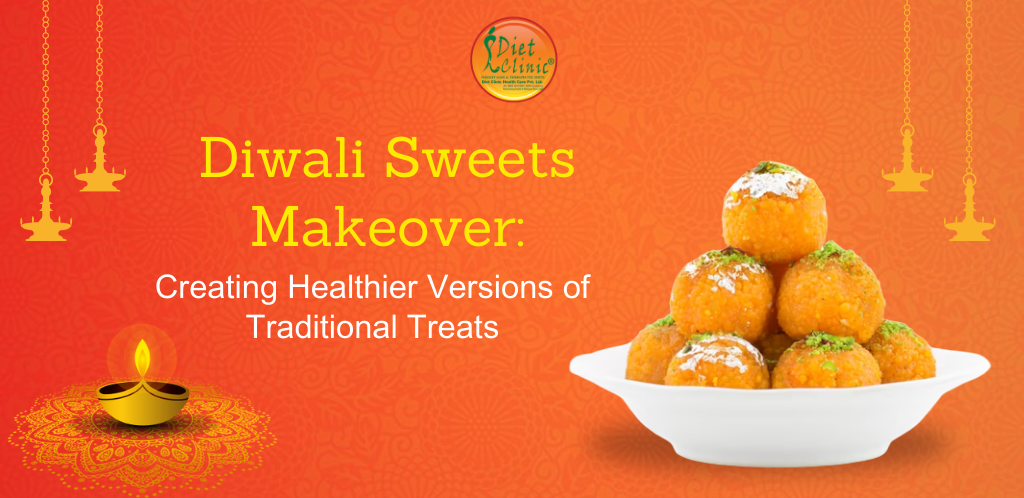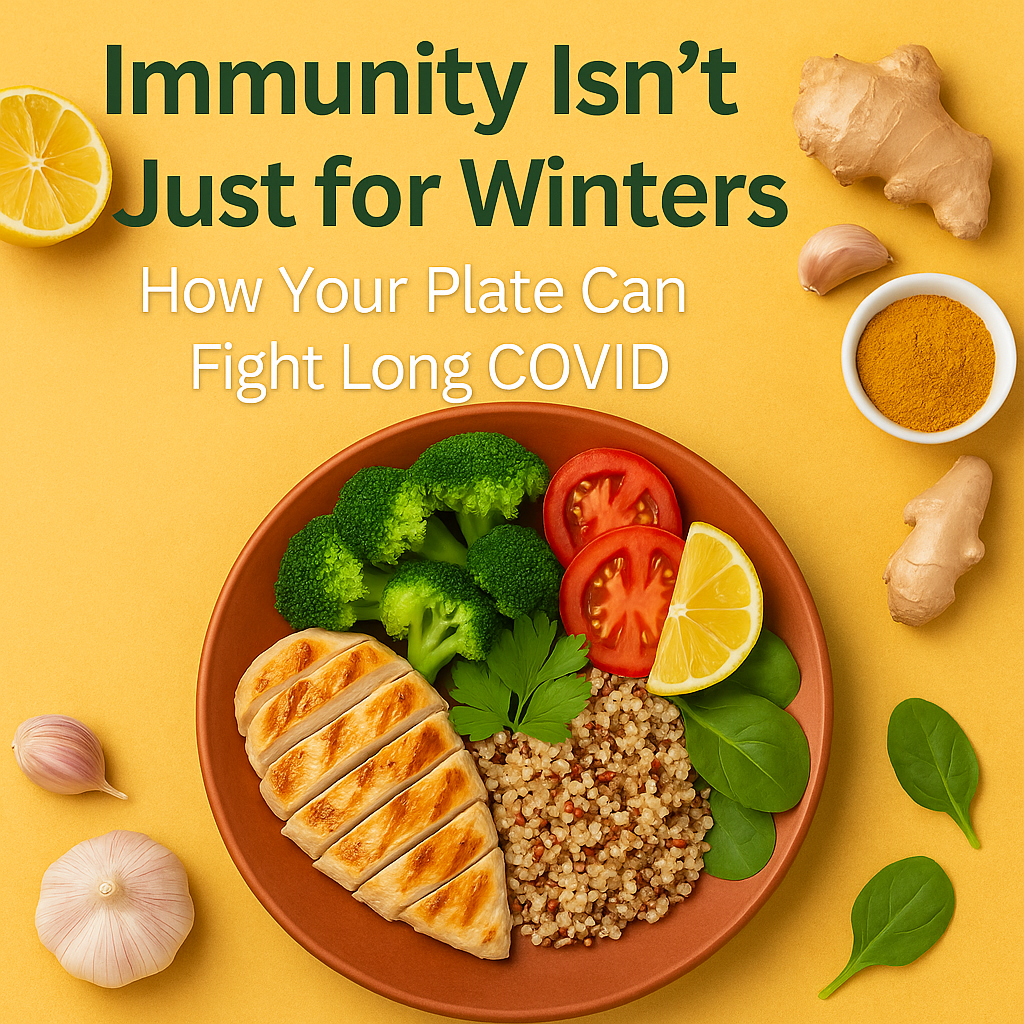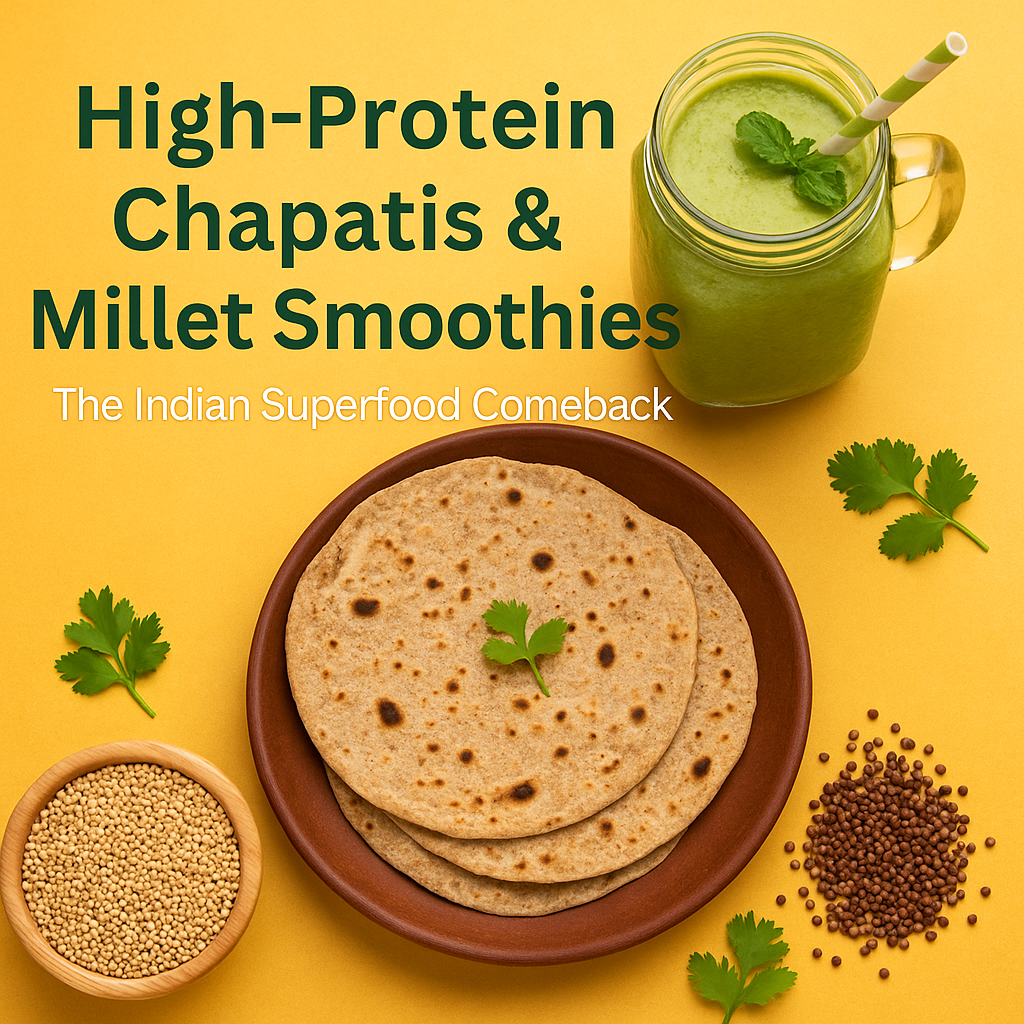
Dietician Sheela Seharawat
Diwali Sweets Makeover: Creating Healthier Versions of Traditional Treats
Diwali, the festival of lights, is a time of joy, celebration, and togetherness. One of the hallmark traditions of Diwali is the exchange of sweets and the indulgence in a wide array of delectable treats. While these sweets are an integral part of the festivities, they often come with a significant dose of sugar, ghee (clarified butter), and calories.
As a dietician, I understand the importance of savoring traditional flavors during Diwali while also caring for our health. In this blog, I'll share tips and recipes for giving your favorite Diwali sweets a healthy makeover, allowing you to enjoy the celebrations without compromising your well-being.
The Significance of Diwali Sweets
Diwali, also known as Deepavali, signifies the victory of light over darkness and good over evil. It's a time when families come together, homes are adorned with lamps and candles, and a sense of warmth and unity fills the air. Sweets play a significant role in Diwali celebrations for several reasons:
Symbol of Celebration: Sweets are symbolic of the joy and celebration associated with Diwali. They are shared with loved ones and exchanged as a gesture of goodwill.
Offerings to Deities: Sweets are often offered to deities during Diwali prayers and rituals as a form of devotion and gratitude.
Hospitality: Diwali is a time for welcoming guests into your home. Sweets are offered to guests as a sign of hospitality and warmth.
Tradition and Culture: Traditional sweets have been a part of Diwali customs for generations. They connect us to our cultural heritage and bring a sense of nostalgia.
The Challenge of Traditional Diwali Sweets
While traditional Diwali sweets are undeniably delicious, they are typically made with ingredients that are high in sugar, saturated fats, and calories. Some common ingredients in these sweets include ghee, sugar, condensed milk, and various types of flour. As a result, indulging in these sweets can lead to health concerns such as weight gain, elevated blood sugar levels, and a higher risk of heart disease.
Healthy Diwali Sweets Makeover
The good news is that you can still enjoy the flavors of Diwali by giving your favorite sweets a healthy makeover. Here are some tips and recipes to help you create healthier versions of traditional Diwali treats:
1. Use Healthier Ingredients:
Substitute refined sugar with natural sweeteners like jaggery, dates, or honey.
Replace regular flour with whole wheat flour, almond flour, or other healthier alternatives.
Opt for low-fat or plant-based milk instead of full-fat milk or condensed milk.
Choose heart-healthy fats like unsaturated oils (e.g., olive oil or coconut oil) instead of ghee or butter.
2. Reduce Sugar Content:
Gradually reduce the amount of sugar used in your recipes. Your taste buds will adjust over time.
Enhance the sweetness of your sweets with natural ingredients like cardamom, cinnamon, or vanilla.
3. Add Nutrient-Rich Ingredients:
Incorporate nuts and seeds like almonds, walnuts, and flaxseeds into your sweets. They provide healthy fats, protein, and fiber.
Use dried fruits like raisins, apricots, or figs to add natural sweetness and additional nutrients.
4. Portion Control:
Enjoy your Diwali sweets in moderation. Consider smaller portion sizes to satisfy your sweet tooth without overindulging.
5. Choose Baking Over Frying:
When possible, opt for baking or air frying instead of deep frying. This reduces the amount of oil used and lowers the overall calorie content.
6. Focus on Nutritional Value:
Create sweets that offer nutritional value. For example, you can make energy balls using dates, nuts, and seeds or prepare a sweet yogurt parfait with fresh fruits and honey.
7. Experiment with Flavors:
Explore unique flavors and ingredients like saffron, rosewater, or cardamom to add a twist to your traditional sweets.
Healthy Diwali Sweet Recipes
Here are some healthy Diwali sweet recipes that you can try:
1. Date and Nut Ladoo:
Ingredients:
1 cup pitted dates
1/2 cup mixed nuts (almonds, cashews, and pistachios)
1/2 tsp cardamom powder
1 tbsp honey (optional)
Desiccated coconut for coating (optional)
Instructions:
In a food processor, blend dates until they form a sticky paste.
Add mixed nuts and cardamom powder to the date paste. Pulse until the nuts are chopped finely.
If desired, drizzle honey into the mixture for added sweetness.
Roll the mixture into small ladoos (round balls).
Optionally, coat the ladoos with desiccated coconut.
Refrigerate for a couple of hours before serving.
2. Baked Gujiya:
Ingredients:
1 cup whole wheat flour
2 tbsp olive oil
1/4 cup grated coconut
1/4 cup chopped mixed nuts
1/4 cup jaggery or date syrup
1/2 tsp cardamom powder
1/4 tsp nutmeg powder
Instructions:
In a mixing bowl, combine whole wheat flour and olive oil. Knead into a smooth dough using water as needed.
In a separate pan, roast grated coconut and mixed nuts until fragrant.
Add jaggery or date syrup, cardamom powder, and nutmeg powder to the roasted mixture. Cook until well combined and slightly sticky.
Roll out the dough and cut circles using a round cutter.
Place a spoonful of the sweet mixture on one half of each circle and fold it over to create a half-moon shape.
Seal the edges by pressing with a fork.
Place the gujiyas on a baking tray lined with parchment paper and bake at 350°F (180°C) for about 20-25 minutes or until golden brown.
3. Ragi (Finger Millet) Ladoo:
Ingredients:
1 cup ragi (finger millet) flour
1/2 cup jaggery powder
2 tbsp grated coconut
2 tbsp ghee or coconut oil
A pinch of cardamom powder
Chopped nuts for garnish (optional)
Instructions:
Dry roast ragi flour in a pan until it becomes fragrant and changes color slightly. Allow it to cool.
In a separate pan, melt ghee or coconut oil and add jaggery powder. Stir until it melts and forms a syrup-like consistency.
Mix the roasted ragi flour, grated coconut, and cardamom powder into the jaggery syrup.
Let the mixture cool slightly, then shape it into small ladoos.
Garnish with chopped nuts if desired.
Allow the ragi ladoos to set before serving.
Diwali is a time of joy, love, and sharing, and sweets are a significant part of this celebration. By giving your favorite Diwali sweets a healthy makeover, you can enjoy the festivities guilt-free while also prioritizing your health and well-being. Remember that moderation is key, and a balanced approach to enjoying traditional flavors can make your Diwali celebrations even more special. This Diwali, may your homes be filled with light, love, and the delicious aroma of wholesome sweets. Happy Diwali!










